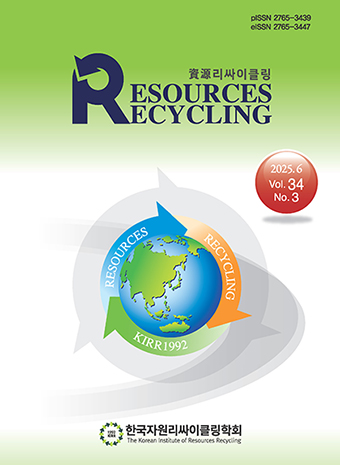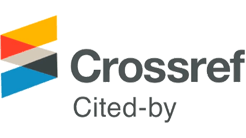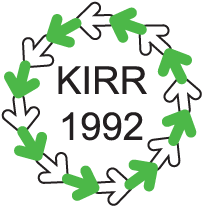Instructions for Authors
INSTRUCTIONS FOR AUTHORS
Resources Recycling
(Enacted in August 1992, most recently revised in February 2019)
Guide for Authors
Resources Recycling is a bimonthly journal comprehensively covering all aspects of the processing for the recovery of valuables from various secondary resources. Therefore, the journal aims at publishing high quality research as well as review articles including waste management professionals in academia, engineering, government, and industry. The authors are encouraged to submit original research contributions that have novelty and potential industrial significance. The manuscript which reports practical scope and applicability in the area of recycling processes, and new theoretical concepts verified by experimental details will be encouraged to submit. The journal publishes contributions such as, research paper, technical note, technological review, letter or communication, note, and comments.
Ethical Issues
All authors are required to comply fully with current ethical standards for publication in their disciplines as follows;
- (1)The manuscript should be original, not having been published previously.
- (2)A research paper published at a conference or in un-registered literature should be improved and completed to be considered as an original paper.
- (3)Author should submit an Author's Checklist. Submission of the Author's Checklist is considered to denote agreement with the research and publication ethics defined by the Korean Institute of Resources Recycling.
- (4)Authors should provide detailed information about the paper to the editor and confirm any ethical issues pertaining to the reproduction of a previously published paper.
Subsequent Actions : If the results of investigation prove there was no research misconduct, the Institute shall conduct appropriate subsequent action to restore the honor of the researcher. If the results prove there was research misconduct, the Institute shall publicize the results and may conduct the following subsequent actions based on the resolution of the committee according to the gravity of the misconduct.
- ①Request the cancellation or modification of research results
- ②Cancel the publication of research results (send the official documents to relevant institutions to cancel existing publication)
- ③Withdraw the membership of or expel the researcher
- ④Notify the presidents of affiliated institutions
- ⑤Report to the law institute
Copyright
Authors transfer the copyright of their article to The Korean Institute of Resources Recycling on signing the Copyright Transfer Form, which will be sent to the corresponding author. Please note that these forms must be signed before a manuscript is published.
Type of Manuscript
Review Paper: Review Papers review important areas of recycling in order to inform the general reader of the background, state of art, and outstanding research results. Authors who has a plan to submit a ‘Journal Review’ are recommended to contact the editor.
Research Paper: Original findings pertaining to the scope of the journal will be published after peer review. Full-length research papers describe important new experimental or theoretical results. Submitted manuscripts will be peer reviewed by three reviewers who are assigned by the Editor.
Short Communication: Short communications are short reports which convey the essence of a new experimental or a theoretical concept, present new experimental data, elaborate on a previous journal article, etc. A short paper describes briefly a piece of work which is not comprehensive enough to make it submit as a full article. Nomenclature, units, and references must conform to those for ‘Research Paper’.
Discussion: Discussion may be submitted on any subject of interest to the journal readership. Discussion commenting on previously published articles will normally be sent to the authors of the previously publication for possible response prior to publication.
Review Process
All manuscript are peer-reviewed by three reviewers assigned by the Editor. Based on the review results, a manuscript may be accepted without change, recommended for modification with or without further reviews, or rejected. Acceptance for publication depends on the author's responses to the reviewers' comments. Authors should prepare a manuscript in accordance with the format given below.
PREPARATION of MANUSCRIPTS
Submission of an manuscript implies that the work reported in the manuscript has never been published. Manuscript should be written in Korean or English, and be typed in at most 30 double-spaced pages on one side of 210×279 mm including figures and tables.
The format for full-length research paper is described below
Title and Authors: Title of the paper, the name of the author, and the affiliation. The full name of the author should be written on the manuscript. Example) Kil Dong Hong, Kil-Dong Hong, Kildong Hong.
Abstract and Key Words: The abstract should be written in both Korean and English, and state the objectives and present conclusions in no more than 450 characters in Korean (150 words in English). It should be concise giving scope and purpose, methods or procedures, significant new results, and conclusions. Five or less key words in Korean and English should be given for subject index.
Body: Each author may choose the article structure suited to the manuscript containing introduction, experimental, results, discussions, conclusions, etc. Writing should be concise, eliminate details that are not essential to the development and are readily available in previously published papers, or accessible reports. Text should be sectionalized by inserting appropriate headings.
Unit: SI system should be used for all dimensional quantities.
Acknowledgement: Acknowledgement section is placed at the end of body. It could cite financial support and information.
Nomenclature: Symbols used in the text or equations should be collected and identified in a table of nomenclature with definitions and dimensions near the end of the manuscript prior to the references section. Roman symbols should be listed alphabetically in the table first, then Greek symbols. The symbols should be those commonly used in material and mineral engineering.
References: References cited in the text should be listed in a numerical order. Citation of references should be made sequentially, in the form 1,2) or 3-6). One reference number should correspond to one reference. A reference is described in the order: names of authors, published year: the title of article, the abbreviated name of the journal, volume number (issue number), page. All references must be written in English.
Examples are as follows:
- 1.Edwards, C. R., 1991 : The recovery of metal values from process residues, JOM, 43(6), pp32-33.
- 2.Perrot, P., Tissier, J. C., and Dauphin, J. Y., 1992 : Zinc recycling in galvanized sheet, Proc. of Intern. Conf. on the Recycling of Metals, MIS of ASM, pp135-141, The European Council of ASM Intern. and its Technical Committee, Dusseldorf/Neuss-Germany, 13-15 May 1992, Printed in Belgium.
Figures: Each figure should be numbered. Drawings and charts should be carefully made with black-and-white photographic prints or high-quality laser prints. It should be of sufficient size so that after photo reduction to a single column width (6.5 cm) or two column width (13 cm) the smallest letter will be 1.5 mm. Legend should be placed in the white with a grid in which spacing is commensurated with the accuracy implied in the plot. Original drawing should be retained by the authors until requested by the editor. All figure captions should be typed in English on a separate sheet.
Tables: Tables should be numbered in Arabic numerals. They should have brief descriptive titles in English and should be prepared on a separate sheet. Tables should be numbered by the order of mention in the text.
Equations: All equations should be numbered in Arabic numerals.
SUBMISSION
The article should be submitted by the member of the Korean Institute of Resources Recycling and a corresponding author should be appointed in the case of more than two authors.
The type of article should be marked on the cover of the manuscript. Four hard copies of the manuscript should be sent to the Korean Institute of Resources Recycling. The editorial board could reject the following paper which fail to obey the guide for authors which had been set up by the Korean Institute of Resources Recycling, and do not have clear text and figures, and describe subjects irrelvant of the scope of the Korean Institute of Resources Recycling.
Submission confirmation will be informed to the corresponding author as soon as a manuscript is arrived to the editorial office. When authors do not receive such confirmation from the editorial office, authors are encouraged to contact the editorial office. By submitting a manuscript, it is implicitly agreed that authors agree with the transfer of the copyright for their manuscript to the publisher once the manuscript is accepted for publication.
Authors should submit their revised manuscript within 3 months after they are required by the Korean Institute of Resources Recycling editors. If authors don’t submit the revised manuscript, the article will be ‘rejected’.
PAGE CHARGES and REPRINTS
To help mechanical and handling costs, the editorial board has authorized a charge as follows
| Pages* | Publication Charge | |
|---|---|---|
| Regular Paper |
Less than 6 pages | 250,000 KRW |
| More than 7 pages | 30,000 KRW per page | |
| Express Paper** |
Less than 6 pages | 400,000 KRW |
| More than 7 pages | 50,000 KRW per page |
*Pages means printed page in Resources Recycling
**Express paper indicates the paper submitted after 10th in odd number month, and published by next even number month by the author’s requirement.
After page charges are paid, publication will be completed. Free 20 reprints will be supplied to the authors paying page charges. Depending on the decision of the editorial board, the page charge may be waived. An order form for additional reprints will be sent to the author along with galley proofs.
Manuscripts should be submitted via the online Manuscript Central website(http://www.kirr.or.kr / https://submission.j-kirr.or.kr/). Other correspondences can be sent by an e-mail to the executive secretary(or manuscript editor), Ji-won Min, The Korean Institute of Resources Recycling, Seoul, 06130, Korea(Tel:+82-2-3453-3541, 3542 / Fax:+82-2-3453-3540 / E-mail : kirr@kirr.or.kr)


 Resources Recycling
Resources Recycling








